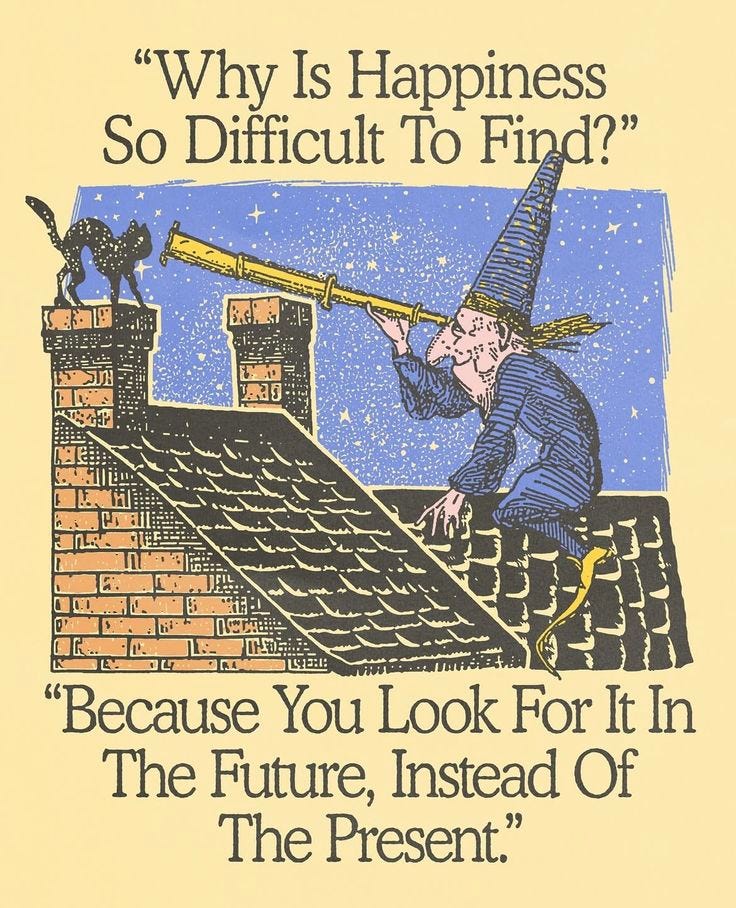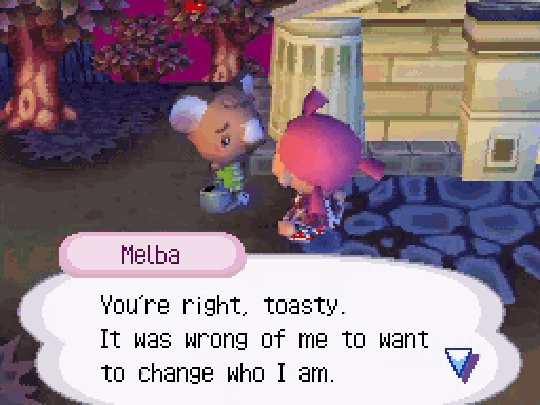Wake up at 4 a.m. Workout on an empty stomach. Stick your face in a bucket of ice. Journal and meditate every day. If you want to change the shape of your face, do daily face massages. Use gua sha.
Here’s a 10-step skin routine that helped me. But, also, cut out sugar. Cut out carbs. Eat protein, but maybe you’d want to avoid animal protein. Hot girl walk! 10k steps a day is crucial. Go to the gym! But, maybe, if you’re a woman, you don’t want to get too bulky, huh? Pilates is the way to go.
Reading fiction is stupid—you should be reading self-improvement books instead. Oh, and get a side hustle. Here are 10 ways to make passive income online! But, also, get some hobbies. You shouldn’t have to monetize every single thing you do. Limit your screen time—but, also, build your business online. You should be able to become your own boss.
Here are 10 ways to heal your anxious attachment style. You are a high-value woman. Don’t date shitty men. If he wanted to, he would. Cut people off before they get the chance to apologize. It’s better to be alone than in bad company.
You need to be better.
You need to be better.
You need to be better.

You will never be enough.
Sounds familiar, right? Every time we log in, the Internet is flooded with messages like these. It’s hard not to get sucked into them—it’s human nature to want to be better.
However, the constant pursuit of self-improvement may not be as healthy and helpful as it’s marketed to seem.
Most of the time, especially with the current online ecosystem, it can stop being a self-care tool and become the very shovel you use to start burying yourself in shame.
When it turns into obsession, it pulls us away from real life.
And it becomes just another excuse to escape the present.
I’ve been an avid consumer of the self-help industry for almost a decade. As a lost teen with no adult role models, I turned to the Internet to find someone who could tell me what to do, how to act, how to be better.
I started consuming self-help YouTubers like no one else. When I was seventeen, instead of worrying about dating, grades, and graduation, I was trying to become a vegan and a minimalist at the same time, eating as clean as possible, experimenting with pilates, yoga, and meditation techniques, and trying more journaling methods than I could count.
My life was ruled by perfectionism: perfectly scheduled days, morning routines, bullet journals, self-help books, and Matt D’Avella videos.
We all know the story. The desire to improve becomes an obsession, and you always want more, more, more.
It’s never enough.
Like constantly trying to lose weight, you always feel the need to take the next step, hit the next milestone, build the next habit, or try whatever (the weirder, the better) routine just went viral on the Internet.

 Tiktok failed to load.
Tiktok failed to load.Enable 3rd party cookies or use another browser
(Like, please… The banana peel ???).
And I know I’m not the only one. Whether we want to admit it or not, most of us are sucked into this self-improvement black hole we can’t seem to escape.
Because, at the end of the day, the illusion sold by the self-help industry is incredibly attractive. Who doesn’t want to join the 4AM club, be incredibly productive, become a millionaire by 30, have glass skin, and never procrastinate again in their life?
The trap works because these promises disguise themselves as a kind of modern spirituality. They mimick religion offering control, order and some kind of meaning.
But they don’t offer community. (Notice how most of these routines are shown by people who seem to be always alone? How most of the gurus in these online spaces call themselves ‘lone wolves’?). They don’t offer compassion.
They don’t offer contentment or rest. And as much as they try to sell it to you, they don’t offer a so-called calm nervous system, either.
Because, after a while, all of this becomes a never-ending cycle.
When you’re trying to keep up with all of your new-found habits and techniques, you’re most likely to fail. Because it’s normal. Because we are human beings, after all. We are not robots. (Well, at least, for now).
But when you fail, it turns into guilt. And that guilt leads to procrastination, which leads to scrolling on social media, which leads to consuming more self-improvement content, which leads to comparison, which leads to anxiety. And the cycle begins again.
To truly get better, you have to break the pattern. You can’t get better from a place of hate—only from a place of love. And you need to redefine what ‘self-improvement’ truly means to you.
You need to realize that you don’t need to be perfect at everything—that small steps are better than none, anyway.
Because being over-productive, intellectualizing your feelings, and cutting off people in the name of ‘personal peace’—no matter what creators like Thewizardliz say—is not real self-improvement.
It’s self-isolation. It’s mindlessly punishing yourself for just being… you. It’s abandoning yourself in order to chase a future version that doesn’t even exist.
If your worth depends on your productivity, you’ll never truly rest. Because, in the end, endless self-improvement becomes a disguised form of self-rejection.
In her piece You Can’t Delay Gratification Forever (an incredible essay, I must say, that has inspired the concept of this one)
writes:‘I’m here to say that there will ALWAYS be a next thing. There will always be something that seems worth the sacrifice of temporary happiness in pursuit of a more lasting contentment. But if you live your whole life that way, the only lasting thing will be work and more work, on and on, forever’.
Damn, she is so right.
And hey, I am not saying building healthy habits, reading self-help books and doing things such as, I don't know, eating clean, is bad. These things have actually helped me in many ways.
The real problem begins when these ideas become exploitable, when creators can profit from your insecurities. The same ideas get recycled over and over again, and they’re rarely helpful… Because some of these people don’t actually want you to improve.
If you did, the chase would be over.
And if the chase was over, you’d stop consuming their content, buying their products, reading their books.
They need you to keep needing them. That’s how the industry works.
And getting into this trap will lead you to escape the present because you can’t love the version of yourself that exists here and now. Because that would mean facing the truth, that this idealized future version you’re striving for won’t make you happy, either.
(Trust me, I know firsthand. I’ve made most of my dreams come true, and I am still looking for more).
It means facing the fact that this feeling of emptiness will stay inside you no matter how many things you achieve—unless you do the real, dirty work: therapy, shadow work, looking inward, and learning how to be happy just existing.
Just being. Not producing. Not improving. Not constantly proving that you deserve to be here.
That’s the only way to live a happy, fullfilling life.
We must remind ourselves, as
writes in her piece the case for living life in seasons, that we shouldn’t deny ourselves the value of bigger and better and more beautiful experiences for the sake of discipline.It’s time we start seeing ourselves through love and presence, not through lack. To take care of ourselves because we love ourselves. To remind ourselves that rest is just as important, and that we don’t need to earn belonging—it’s our right to receive it by just being in this world.
We need to start listening to our bodies. To learn what kind of movement feels good, which foods make us feel better. To do things without guilt. To not do things without guilt.
And, overall, to embrace the different eras in life. The slow ones, and the frantic ones. To be our own best companions in the process.
Because no amount of TED Talks will give us the love we need to give ourselves. There’s no magic potion, no switch to press.
It’s about patience. About building a relationship with ourselves slowly, like watering flowers and waiting for them to grow. We need to give this kind of quiet compassion to our own lives, even the imperfect bits.
The ones we don’t like. The ones we regret. The ones that are not as glamorous. The ones that smell like Cheetos while you binge-watch a dating reality show on Netflix. (Not speaking from experience or anything…).
You are worthy of that, even when you are not improving yourself. You are not a ‘work in progress.’
You are you, right now, and that is enough.
thank you for reading! the weekly scrapbook is a reader-supported publication, so if you’d like to support my work, you can become a paid subscriber or buy me a coffee ☕ (or... matcha?) .









You know, for those of us who fell into this trap... we should hang out, and stuff.
They need you to keep needing them!! Absolutely spot-on. Thank you so so much for shouting out my article and sharing it!! I'm so glad you enjoyed it :)